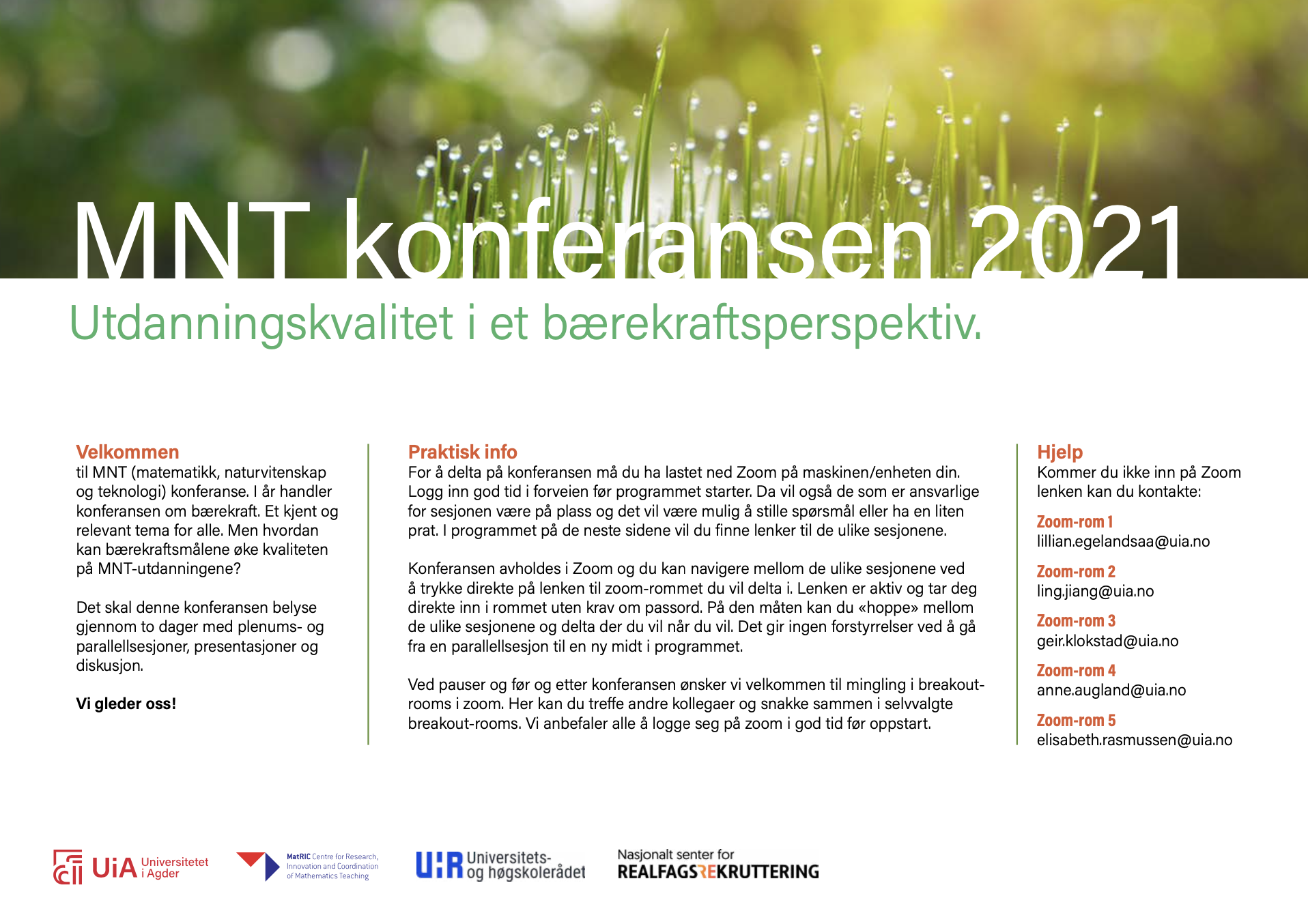Sustainability Competence in Computer Science Education
DOI:
https://doi.org/10.5324/njsteme.v5i1.3953Abstract
Digitalisation creates opportunities and challenges, both socially and environmentally. Are computer science students interested in addressing these opportunities and challenges and is their education providing them the desired competencies? Theoretically, the paper focuses on the concept of competency and presents the eight sustainability competencies formulated in UNESCO’s Education for the Sustainable Development Goals. Two sets of data are analysed to address the research questions: data from a questionnaire focusing on their aspirations for future work and data from a deductive content analysis of the learning outcomes of six bachelor programmes in informatics. Sustainability-related factors scored important/very important in the aspirations for future work. The analysis of the learning outcomes indicates a very weak connection between learning goals and sustainability competencies. An integrative approach is proposed, which may contribute to the development of sustainability competencies that enable the students to take up normative and critical positions in digitalisation and sustainability discourses.
Downloads
Downloads
Published
Issue
Section
License
Copyright (c) 2021 Maja van der Velden, Børge Kile Gjelsten, Siri Moe Jensen

This work is licensed under a Creative Commons Attribution 4.0 International License.
The Nordic Journal of STEM Education licenses all content of the journal under a Creative Commons Attribution (CC-BY) licence. This means, among other things, that anyone is free to copy and distribute the content, as long as they give proper credit to the author(s) and the journal. For further information, see Creative Commons website for human readable or lawyer readable versions.
Authors who publish with this journal agree to the following terms:
1. Authors retain copyright and grant the journal right of first publication with the work simultaneously licensed under a Creative Commons Attribution License that allows others to share the work with an acknowledgement of the work's authorship and initial publication in this journal.
2. Authors are able to enter into separate, additional contractual arrangements for the non-exclusive distribution of the journal's published version of the work (e.g., post it to an institutional repository or publish it in a book), with an acknowledgement of its initial publication in this journal.
3. Authors are permitted and encouraged to post their work online (e.g., in institutional repositories or on their website) prior to and during the submission process, as it can lead to productive exchanges, as well as earlier and greater citation of published work (See The Effect of Open Access

